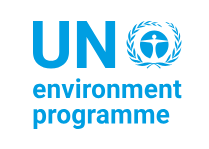SDG Indicator 11.3.2: Proportion of cities with a direct participation structure of civil society in urban planning and management that operate regularly and democratically
1. Key features and metadata
Definition: This indicator measures the progress and willingness of governments and local authorities to integrate resident and civil society participation in urban planning and management at various levels.
| Sub-indicator | Disaggregated by |
|---|---|
|
Proportion of cities with a direct participation structure of civil society in urban planning and management that operates regularly and democratically |
No current data disaggregation available. |
Sources of information: National and local statistical offices through questionnaires developed by UN-Habitat.
2. Data availability by region, SDG Global Database, as of 02 July 2025
Data not available.
3. Proposed disaggregation, links to policymaking and its impact
| Proposed disaggregation | Link to policymaking | Impact |
|---|---|---|
|
By nature and typology of existing participation structures (1=YES; 0=NO) (UN 2018b):
|
This disaggregation highlights the operating instruments and procedures in place to ensure the participation of civil society and citizens in local decision-making. It can be used by policymakers to tailor policies, regulations, technical participatory instruments, coordination schemes, funding sources, decision-making processes, and to foster participatory frameworks. This disaggregation is consistent with The New Urban Agenda (UN 2016b). |
The setting up of appropriate legislative/regulatory mandates, operational mechanisms and an associated enabling environment (i.e. capacity or resources) is necessary for establishing a solid binding foundation conducive to the engagement of people, communities and organizations in local affairs (UN 2018b; UN 2023e). Efforts made to enhance participatory processes at city level help to address social inequities and poverty. They also benefit from local and indigenous knowledge by putting into practice the most suitable solutions. Civil society organizations are a driver of innovation and can ensure, if associated to local decisions, that policies and interventions are adapted to the needs of city dwellers (UN 2023e). |
|
By regularity of participation (1=YES; 0=NO) (UN-Habitat 2018c):
|
This disaggregation is aimed at monitoring the formal basis of participation (i.e. local policy and administrative frameworks) and its regularity. It can be used by local decision-makers to engage city residents in decisions such as urban planning, budget approval, the evaluation of city management performance, or any other decisions of importance that will affect the functioning of the city and the living conditions of its inhabitants. This disaggregation is consistent with The New Urban Agenda (UN 2016b). |
Evidence shows that regular engagement of citizens and civil society in city affairs provides genuine opportunities to ensure the co-creation and co-development of urban areas. This can be through embedding the priorities and needs of city dwellers; fostering trust, responsibility sharing and ownership; and achieving better management performance and results towards sustainable development objectives (UN 2018b; UN-Habitat 2022). To enhance inclusive sustainable development by promoting regular participatory processes, cities must improve their governance framework as well as their institutional and technical capacities. |

